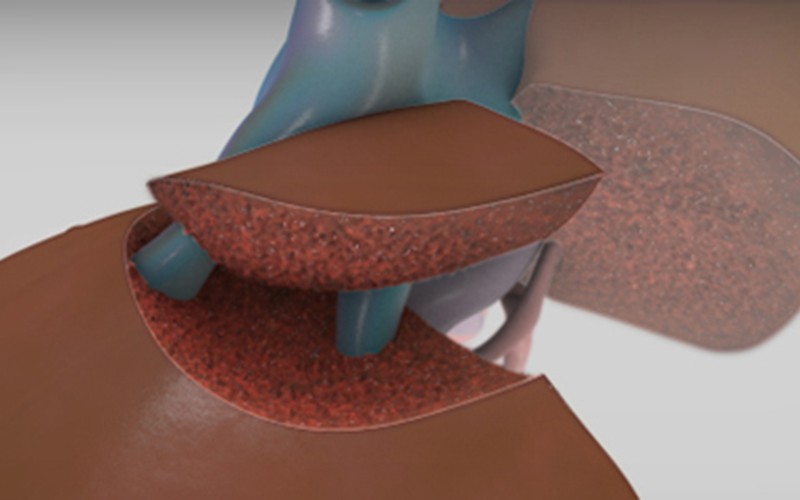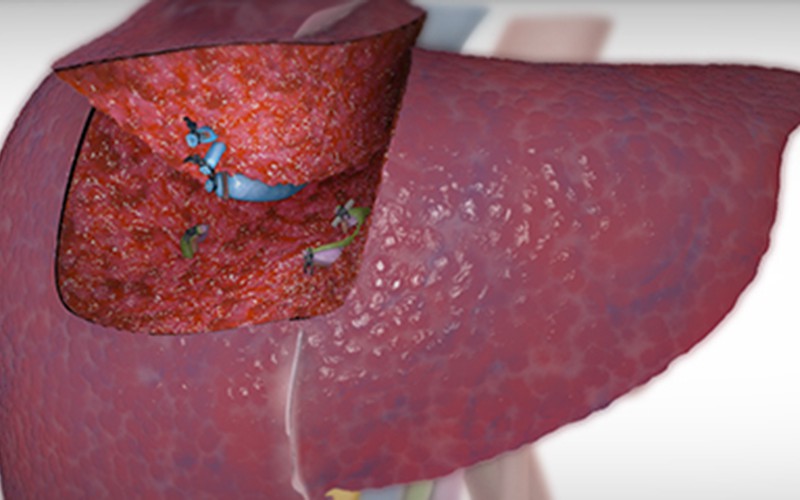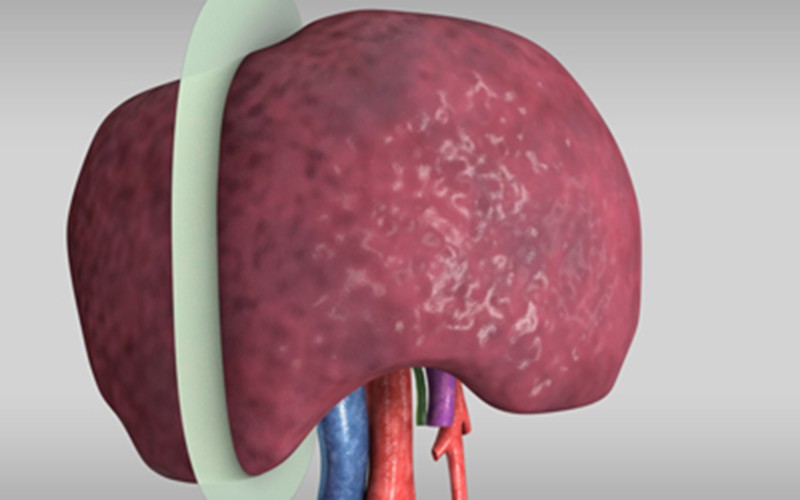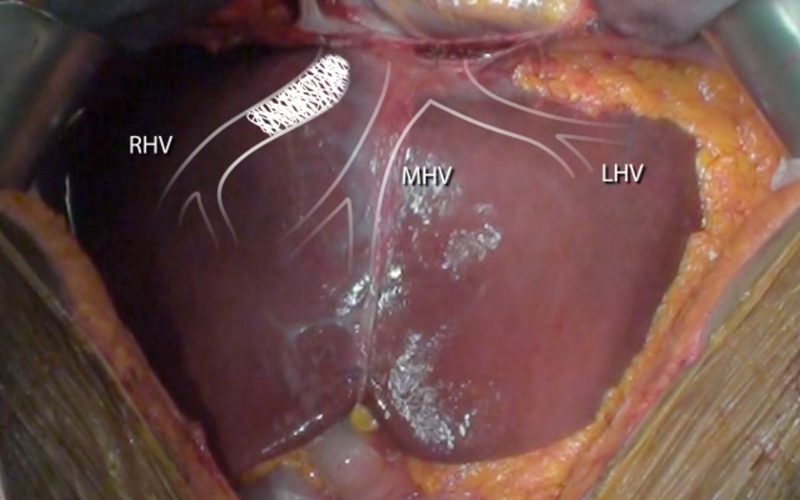Segments V/VIII mesohepatectomy
Resection of liver segments V & VIII with pedicle isolation technique
00:17 SURGICAL PLANNING
02:10 EXPOSURE & MOBILIZATION
03:19 INTRAOPERATIVE ULTRASOUND
04:22 PEDICLE ISOLATION
07:29 1ST TRANSECTION
08:12 2ND TRANSECTION & EXTRACTION
Video chapters
Chapter 1: Surgical Planning
Chapter 2: Exposure & mobilization
Chapter 3: Intraoperative ultrasound
Chapter 4: Pedicle Isolation
Chapter 5: First transection
Chapter 6: Second transection & extraction
Case Description
- A 71 year old man presented with lesions in segments V & VIII.
- The largest lesion was pushing against the middle hepatic vein and was in close proximity to the anterior right portal vein, requiring both to be resected.
- A segment V/VIII Mesohepatectomy resection was considered the best option to leave the largest portion of functioning liver, as opposed to a trisectionectomy or extended hepatectomy.
- Preoperative imaging revealed no biliary dilation.
- The anatomy presented as non-conventional, with right-sided portal structures branching individually from the main portal system.
Surgical Plan
- Incisions are made to the Glissonian capsule superiorly and inferiorly to the right anterior 5/8 pedicle to create space, allowing a vascular stapler to encircle the pedicle.
- The extrahepatic pedicle isolation technique allows for selective inflow control, facilitating an anatomic 5/8 liver resection with sufficient residual liver volume.
- Intraoperative liver ultrasound was used to verify structures, rule out other diseases, visualize intrahepatic vasculature, and verify structure positions in relation to tumour. This ensures postoperative blood flow to the left and posterior segments will not be compromised.
- Because the 5/8 pedicle was extrahepatic, the extrahepatic pedicle isolation approach was ideal.
- During parenchymal transection, circumferential dissection is used to keep the exposure shallow, promoting optimal visibility.
CT scans
Click to turn annotations on/off




